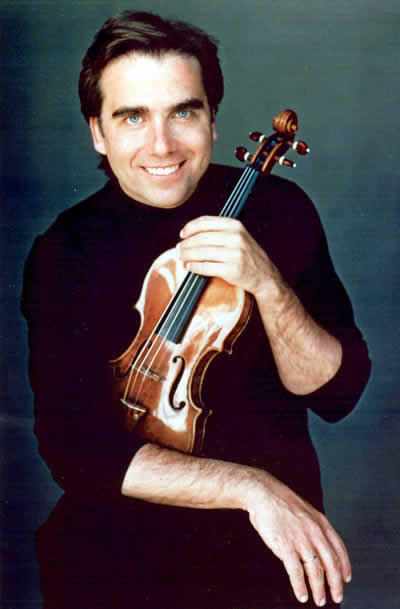

|
Robert McDuffie was born into a musical family in Macon, Georgia,
United States. Both his mother, Susan McDuffie, and his younger sister,
Margerie McDuffie, are pianists. He attended the Juilliard School in New
York City as a student of Dorothy Delay, spending his summers in her studio
at the Aspen Music Festival and School. He plays a Guarneri del Gesù
violin made in 1735 named the "Ladenburg" that he purchased for $3.5 million.
He was nominated for a Grammy in 1990 for his performance of concertos by
Leonard Bernstein and William Schuman. McDuffie is a co-founder and artistic
director for the Rome Chamber Music Festival in Rome, Italy. He currently
lives in New York City with his wife Camille and two children, Eliza and
Will. McDuffie has appeared on A&E's Breakfast with the Arts, CBS News Sunday Morning, NBC's The Today Show, PBS's Charlie Rose, National Public Radio, as well as the front page of The New York Times and The Wall Street Journal. In 2016, he toured to support a Concerto for Violin, Rock Band, and String Orchestra with childhood friend and former R.E.M. bassist Mike Mills, along with guitar players William Tonks and John Neff. The Robert McDuffie Center for Strings of Mercer University offers conservatory-quality music training in a comprehensive university setting. McDuffie leads the center and has served as Distinguished University Professor of Music since 2004. The focus of the center, part of the Townsend School of Music at Mercer's main campus in Macon, Georgia, is to provide highly talented string students the opportunity to learn with some of the nation's most renowned string musicians. The center's home is the Bell House, an antebellum mansion built in 1855 and listed on the National Park Service’s National Register of Historic Places in 1972. Total enrollment is limited to 26 students: 12 violinists, 6 violists, 6 cellists and 2 bassists. |
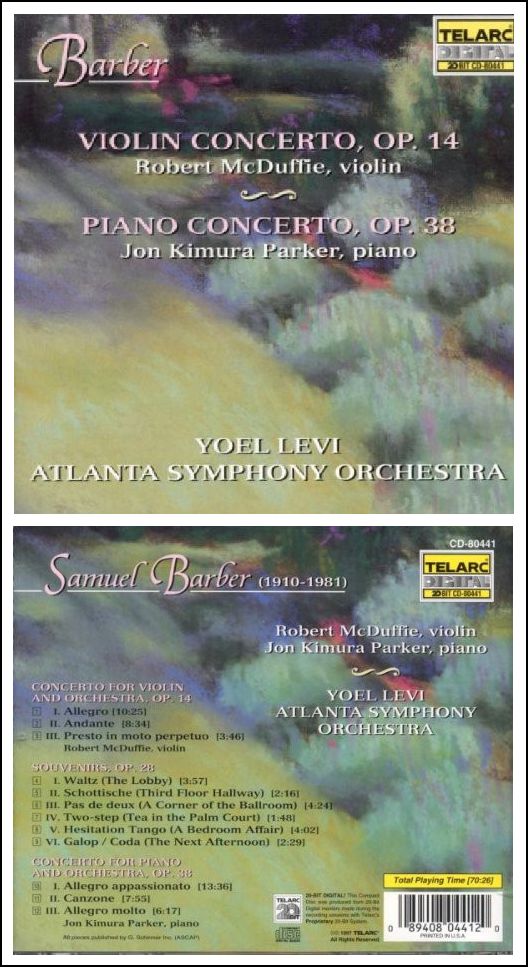
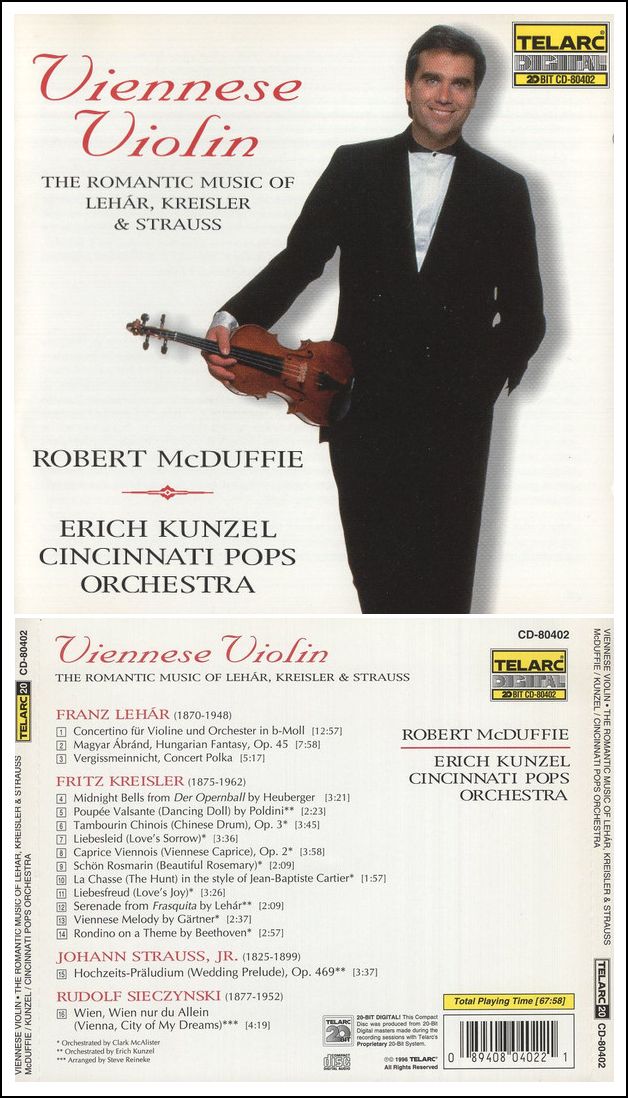
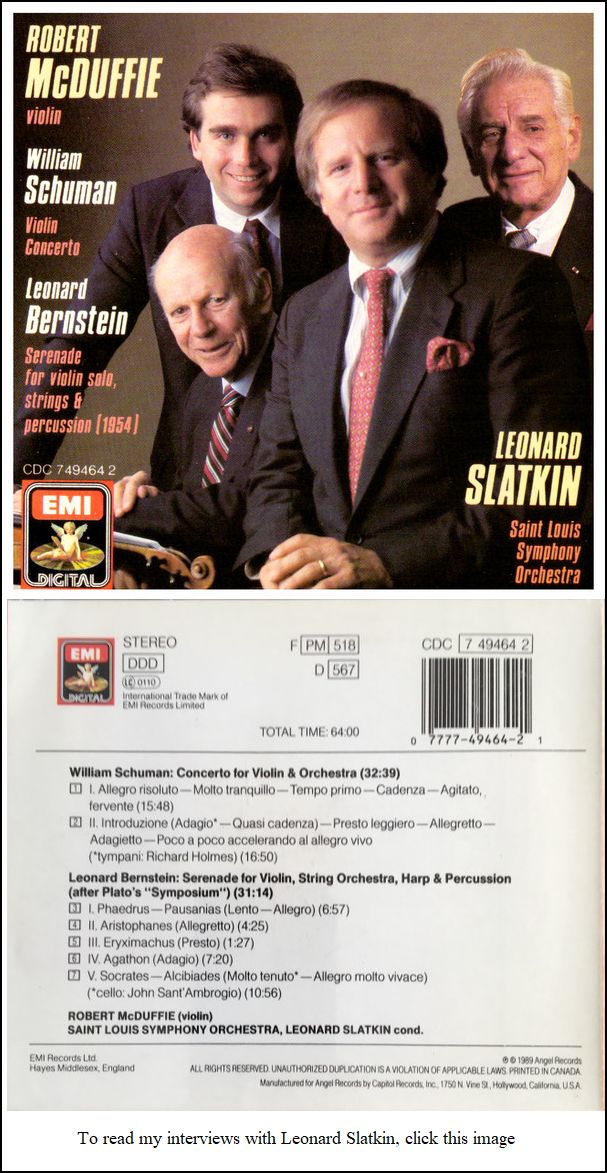
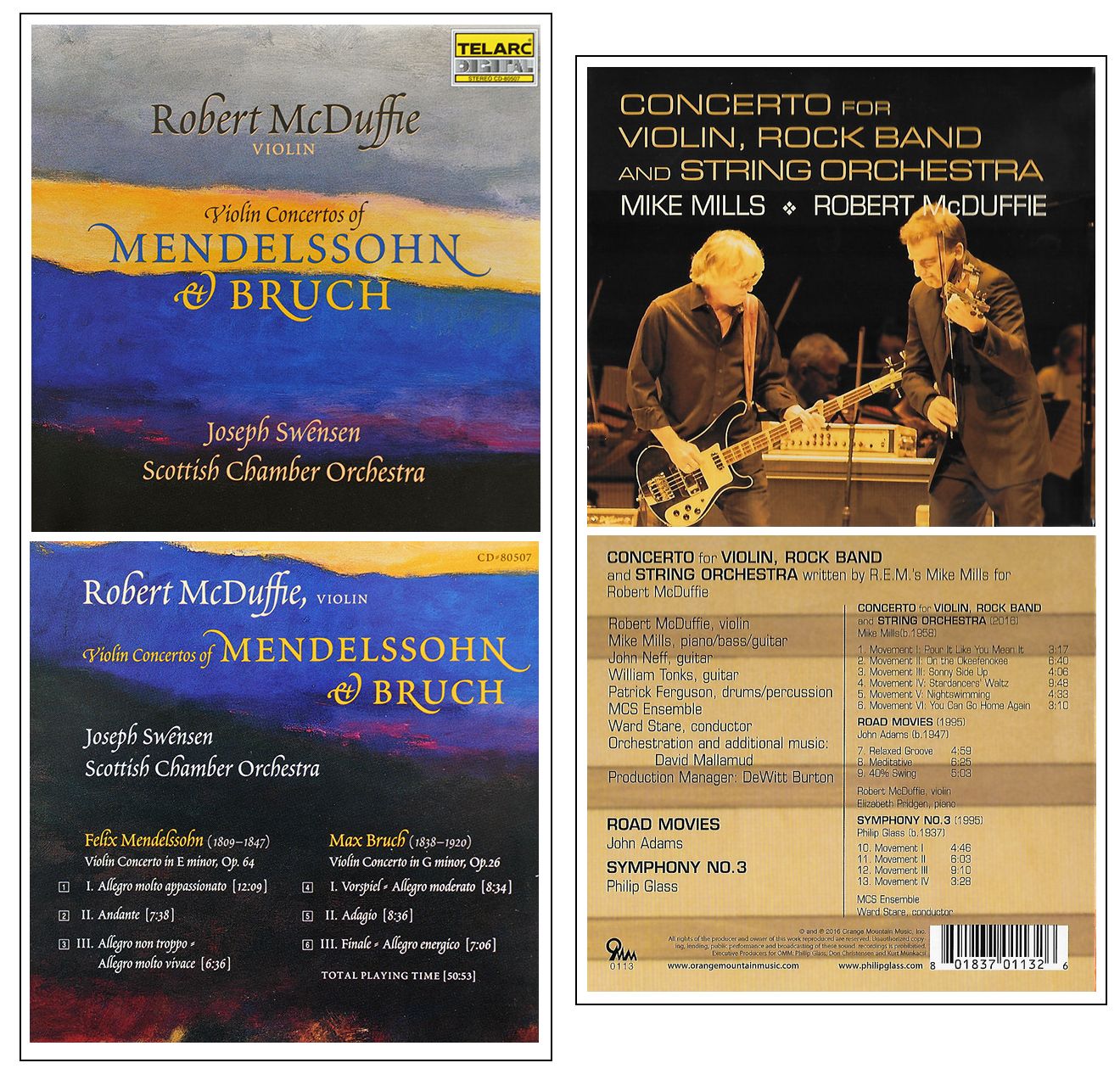
|
[October 16, 2021] Occasionally, people notice that my name (DUFFIE) is spelled differently than usual. As a young boy, I asked my father about it, but he just dismissed it with a shrug and a throw-away line about an ancestor being a horse-thief. In any event, when heard and not seen, most people will assume it's DUFFY. That has never bothered me, except when necessary... like directing people to my website! There, the name needs to be spelled correctly. When speaking with composers, or others involved with new music, they often asked if I was related to John Duffy. A few even thought I was him! John was a composer himself, who also founded Meet The Composer in 1974, and ran it until 1996. When John and I eventually met, I distinctly remember that we both had to carefully write the other's name when scribbling our contact info. I also interviewed the violinist Robert McDuffie, and there is a woman named Duffie Adelson, who ran the Merit School of Music in Chicago. In college, after we music students learned about the early Renaissance composer Guillaume Dufay (or Du Fay, pronounced doo-FYE, or dew-FY, in either case it rhymes with defy) (1397-1474), I was always called by that name. What brought all this to my mind recently was watching baseball games of the Chicago Cubs. (Yes, even after trading away several of their best players, I will still follow them, as I have since I was a kid.) After being with other teams, the infielder Matt DUFFY signed with the Cubs for 2021. It always pleased me to hear the TV announcers say his name, especially when he hit a home run, or made a spectacular fielding play. As it happened, there were a couple of Cubs games against the Minnesota Twins. (They don't play each other very often because they are in different leagues, but now, with inter-league contests, they do meet every few years.) Until I happened to hear my family name spoken on the Twins' roster, I was unaware of pitcher Tyler DUFFEY. Unfortunately, I didn't pay close enough attention at the time to know if DUFFEY pitched to DUFFY. After the fact, I e-mailed the Cubs to find out, but received no answer. So, I sent the same e-mail to the Twins. Again, no answer. Finally, I contacted the Cubs Insider, an unofficial website. Well, you guessed it, I got no response. That's three strikes, so I'm out. This is too bad, because it would have been fun to speculate about DUFFIE watching DUFFEY pitching to DUFFY. Of course, the best would be if I was at Wrigley Field to catch a homer, or even a foul ball in this situation! *sigh* Oh well, as they say, "Wait 'til next year . . . . ." [May, 2022] Well, it's now 'next year', and DUFFY has been traded to the Los Angeles Angels. *big sigh* |
© 1994 Bruce Duffie
This conversation was recorded in Chicago on July 14, 1994. Portions were broadcast on WNIB a few weeks later, and again in 1998. This transcription was made in 2023, and posted on this website at that time. My thanks to British soprano Una Barry for her help in preparing this website presentation.
To see a full list (with links) of interviews which have been transcribed and posted on this website, click here. To read my thoughts on editing these interviews for print, as well as a few other interesting observations, click here.
Award - winning broadcaster Bruce Duffie was with WNIB, Classical 97 in Chicago from 1975 until its final moment as a classical station in February of 2001. His interviews have also appeared in various magazines and journals since 1980, and he now continues his broadcast series on WNUR-FM, as well as on Contemporary Classical Internet Radio.
You are invited to visit his website for more information about his work, including selected transcripts of other interviews, plus a full list of his guests. He would also like to call your attention to the photos and information about his grandfather, who was a pioneer in the automotive field more than a century ago. You may also send him E-Mail with comments, questions and suggestions.